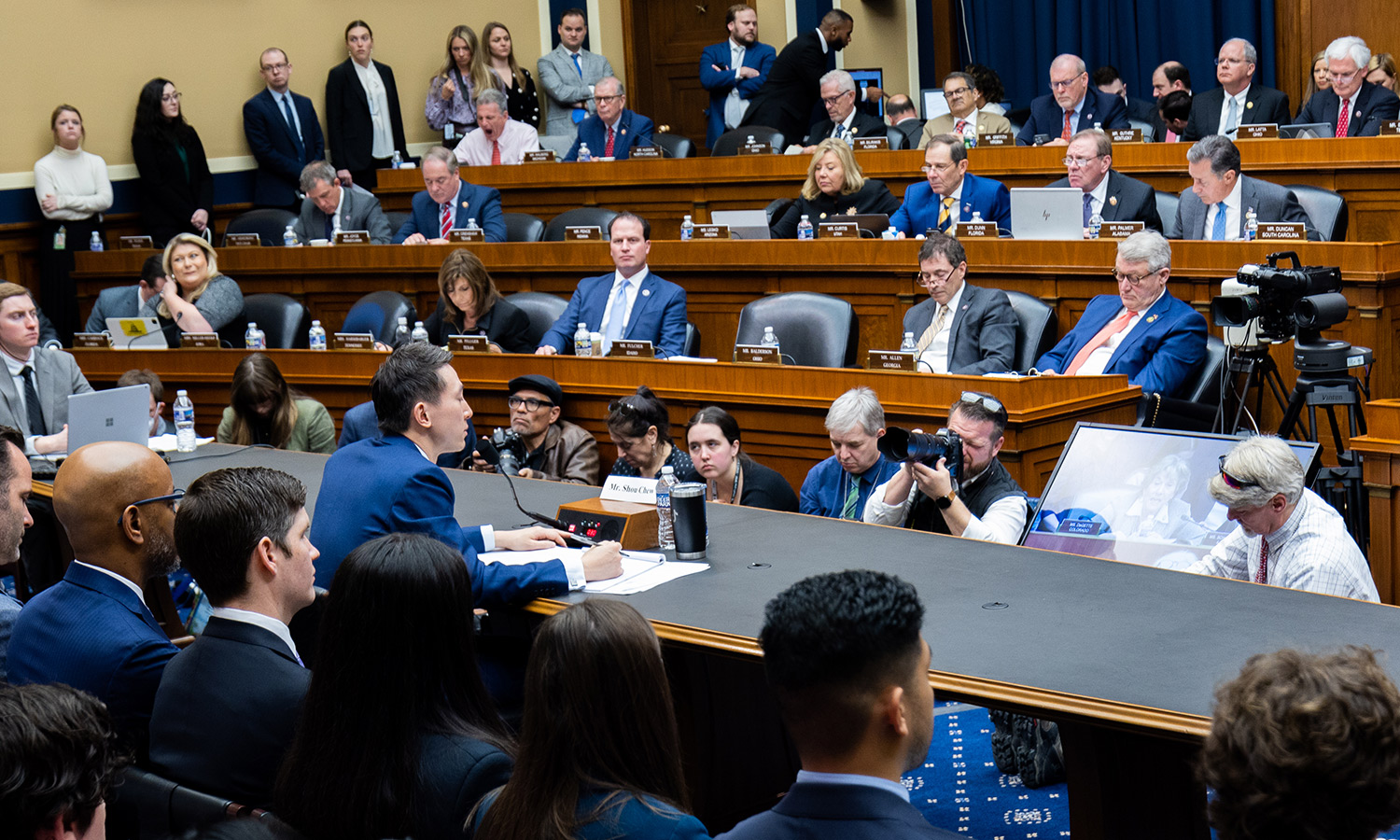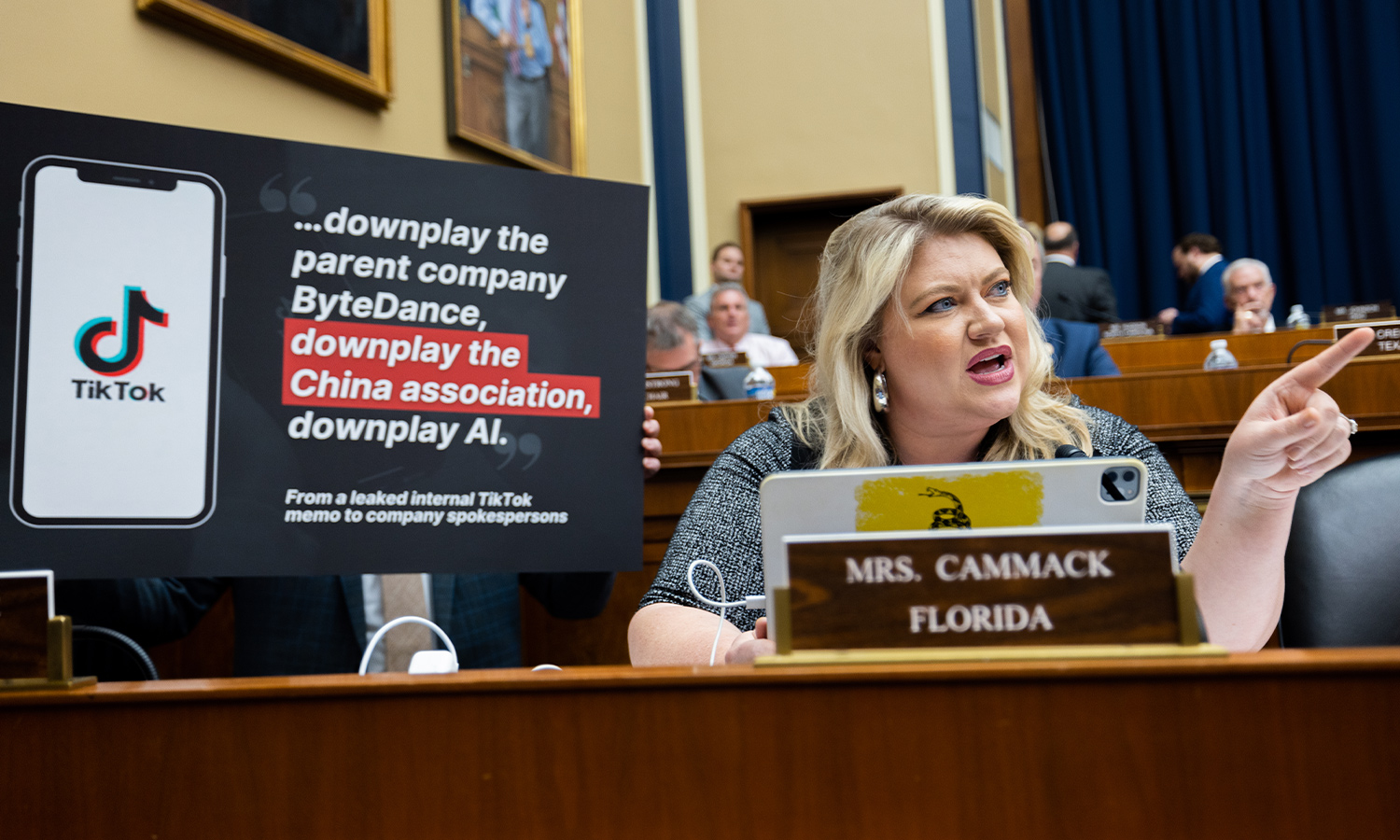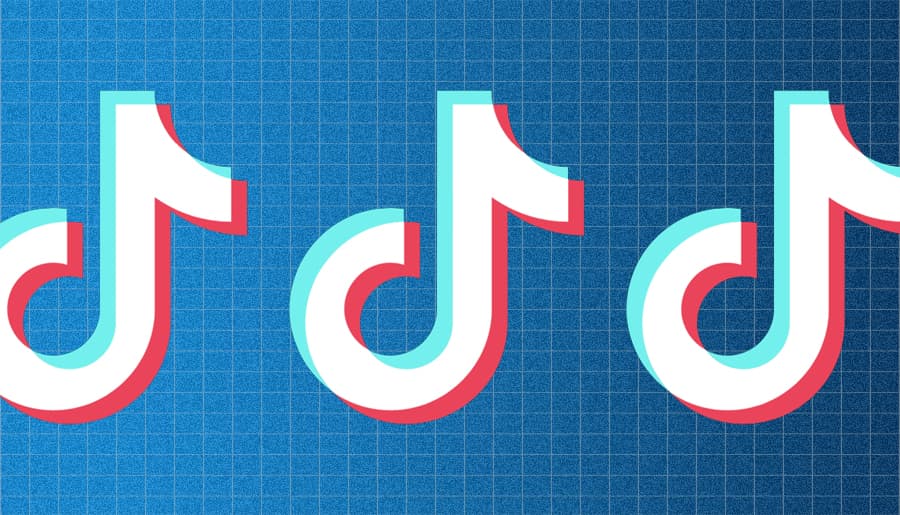Warning: This article deals with the topic of targeted violence against the Uyghur Muslim community and may be triggering for some readers.
TikTok has exploded into online pop culture since its launch in 2018. It rapidly captured the attention and free time of those who found themselves sucked into its algorithmically-charged black hole, displacing traditional social media giants like Facebook, Instagram, and even Google, particularly amongst younger generations.
In 2022, TikTok was the second most downloaded app in Australia, behind the ATO’s mygovID app. Australians now have the highest monthly usage of the platform anywhere on the planet, clocking in at an average of 29 hours and 36 minutes per month. This is up 6 hours and 12 minutes on the year before.
While Australians are drawn to TikTok over all other social media apps, the government has long held a much more sceptical view of the infinite video platform.
Australian politicians, in line with the views of government leaders in the UK and the US, are concerned that ByteDance, the creator and owner of TikTok, has much deeper ties to the Chinese government than they are letting on.
The Department of Home Affairs is has recently submitted a high-level security review of the platform to the Federal government that examines how the app collects user data and how content might be being manipulated on-site to serve pro-China views.
In response to the review, which has not been made public, governments around Australia have now begun moving to ban the app from their devices. Public servants and others won’t be allowed to have the app on phones they use for work in Victoria, the ACT, and NSW, while other state and territory governments are expected to follow suit. The Federal Government has also signed off on a removal of the app for those working under their jursidiction.
TikTok maintains its innocence about being a national security threat. CEO, Shou Zi Chew, appeared before US Congress in March to answer questions about the company’s internal workings.
“TikTok is not owned or controlled by the Chinese government,” a clearly exasperated Chew was forced to repeat during the five-hour grilling by Congress members who did not appear to be very technically literate.

Multiple countries have already imposed various bans on the app, including the UK, France, India, Canada, Belgium, and Pakistan. New Zealand announced recently that it would restrict TikTok on government devices, making Australia the last country in the ‘Five Eyes’ security agreement to follow suit.
In the US, legislators are pushing for greater restrictions on the app, with some calling for its complete ban across America in both the public and private sectors. While the move might seem extreme, there is a tonne of debate around just what the app is capable of and whether or not we will see it restricted further. Here’s what you need to know.
Why Do They Want to Ban TikTok?
In a word, China.
Politicians across the West are worried about what the social media platform might be sharing with the Chinese government. TikTok collects vast arrays of data from its users, likely more than what they’re aware of. It requests access to your camera, microphone, photos, videos, contacts, location, and the ability to track your behaviour online outside of the app. TikTok uses pixel trackers to follow you around the internet, seeing what websites you’re looking at and even what emails you’re receiving.
All of this data gathering is what makes TikTok so addictive; the “sublinear computational complexity” of its algorithm builds an incredibly detailed picture of its users, serving them content they don’t even know that they want. This is no different to how other social media apps work, including the data collection above, but TikTok is just much better at it.
This is all fine (kind of) if you’re a regular joe with no access to high-level government secrets. If you are the kind of person that has a role to play in your country’s domestic or foreign policy, this could be problematic.
A Canadian security firm called Feroot recently found TikTok tracking pixels in 30 US state-government websites across 27 states, including those where the app had been banned from government networks and devices.
Again, this is no different from how Google tracks its users, but the ability for TikTok to peer into the inner workings of governments has lawmakers spooked precisely because it’s a foreign-owned company. This is especially the case as China passed laws in 2017 that mandated Chinese citizens and companies cooperate with Chinese intelligence services and that that cooperation had to be kept secret.
“So, if [TikTok is] asked by the Chinese government to hand over the data on Australian citizens, they will have to comply, and we will never know (and) TikTok Australia may never know that their parent company is engaging in this co-operation,” one cyber security spokesperson told The New Daily.
Is TikTok Banned in Australia?
No. The recent changes announced by state and federal leaders only impact the devices of those working for the government using phones and other devices that have been governmentally issued.
As for a private ban, whereby the app would be restricted to the general public, no one is seriously calling for action that drastic. Cybersecurity Minister, Clare O’Neil, has previously ruled out a general-public ban on the app, meaning regular users will likely be able to continue using it, whatever the government decides for their own devices.
In America, it’s a different story. Under Donald Trump, the US government attempted to dismantle ByteDance by forcing the Beijing-based company to sell ownership of its US operations. The plan never went ahead, but other governments have started taking a close look at how the app might be problematic in their own countries.

Under Scott Morrison, Australia conducted its own security review of the app, which found that there were no security threats in allowing the platform to be used in Australia.
However, in 2022, news broke that TikTok user data in the US, Australia, and elsewhere, were being accessed by TikTok employees based in China. This is contrary to what the company had claimed. TikTok, incensed by the leaks of internal information, then used its powers to track the journalists who reported the stories to figure out who might be leaking info inside their company. This was then also leaked to the media, forcing governments to review their stance on TikTok, hence the latest Australian report.
President Biden is also reportedly planning to follow up the Trump-era policy of separating ByteDance from TikTok in the US to stop American information from being accessed in China. A bill, which has bipartisan support, is currently being debated in the US that would force the sale of the company
Even if the security risks prove to be no different to other social media companies, the kind of influence China might be able to exert over its users is still a concern for governments. There have been reports that videos discussing information the Chinese government is keen to suppress, including its ongoing genocide against the Uyghur Muslim minority in Xinjiang province and the massacre of students at Tiananmen Square in 1989. Security experts have said that China’s influence on domestic policy through the manipulation of content would be very hard to spot.
“That could be something that they could attempt to do in a way that would be very difficult for people to detect,” Fergus Ryan, a senior analyst at the Australian Strategic Policy Institute’s International Cyber Policy Centre, told The Sydney Morning Herald.
“When it comes to elections, that kind of microtargeting of political messages can go right down to certain electorates if they want to.”
Still, TikTok Australia General Manager Lee Hunter has recently come out in defense of his company, stating that the talks of security risks are overblown.
“Whatever the geopolitical context around China, whatever your thoughts are about China, we are not China. We are an entertainment app,” he has said.
The TikTok Ban Australia
Attorney General, Mark Dreyfus, announced on Tuesday that the Federal Government would be moving ahead with its plan to ban TikTok “as soon as practicable.”
“Today, I authorised the Secretary of the Attorney-General’s Department to issue a mandatory direction under the Protective Security Policy Framework to prohibit the TikTok app on devices issued by Commonwealth departments and agencies,” Dreyfus said in a media statement.
“Exemptions will only be granted on a case-by-case basis and with appropriate security mitigations in place”.
The Australian has confirmed that all state and territory governments have been briefed on the decision and are expected to follow suit with similar bans.
The Victorian Government was the first to move, with Premier Daniel Andrews saying that he personally would be deleting his popular TikTok account from the platform. Former Deputy PM, Bill Shorten, has also said he will be pulling his personal account.
“We agree with a nationally consistent approach on these policy settings, and that’s what we’ll get on and deliver,” the Vic government said in a statement.
NSW too has said they are considering similar moves, as is the ACT.
The Greens have hit back at the government’s decision, saying that the ban is “a publicity stunt” and “isn’t serious reform.”
“Despite the political rhetoric, banning TikTok isn’t serious reform. If we’re not careful, it will just be the first hammer blow in an endless game of online whack-a-mole. We’re in a data security and privacy crisis, and we’re fixated on one platform,” Greens Digital Rights spokesperson, David Shoebridge, said in a statement.
“The data security issues for TikTok are mirrored in pretty much every other social media platform, the difference is that our government is not running a fear campaign against the governments that host those platforms”.
The Greens argue that the government is missing the bigger picture here and that, if they have an issue with TikTok’s data harvesting practices, they should also have an issue with similar practices undertaken by Meta, Twitter, Google, Amazon, and more.
If this article brings up any issues for you or anyone you know, or you have experienced targeted violence, please contact Lifeline (13 11 14), Kids Helpline (1800 55 1800), both of which provide trained counsellors you can talk with 24/7. If you are in immediate danger, call 000.
Related: TikTok Is Changing How the “For You” Feed Works
Related: Everything That Went Down at TikTok’s Inaugural ‘For You Fest’
Read more stories from The Latch and subscribe to our email newsletter.







